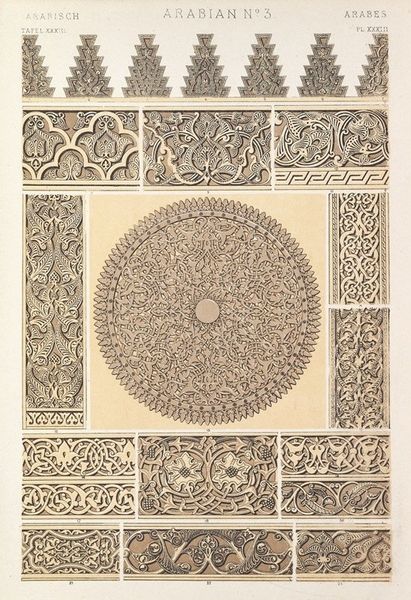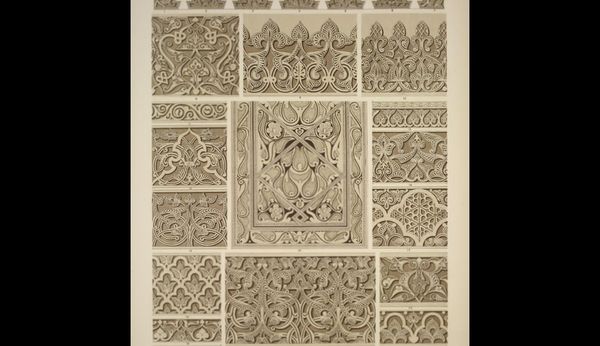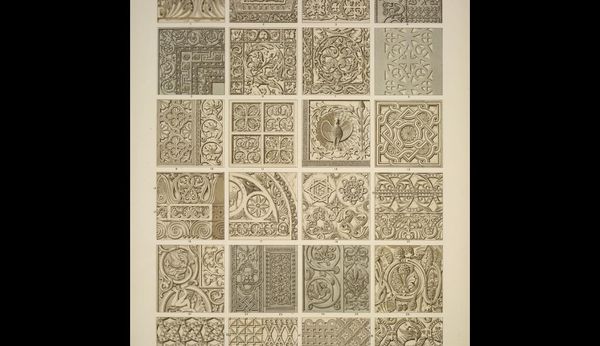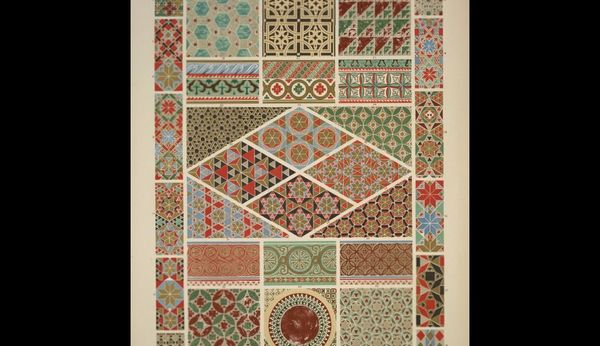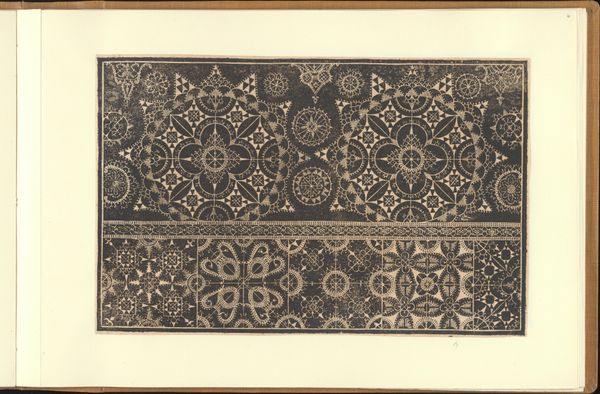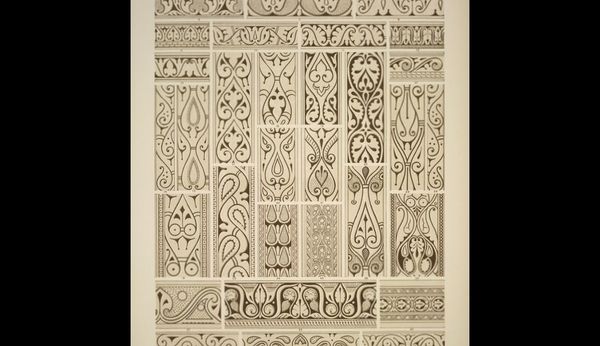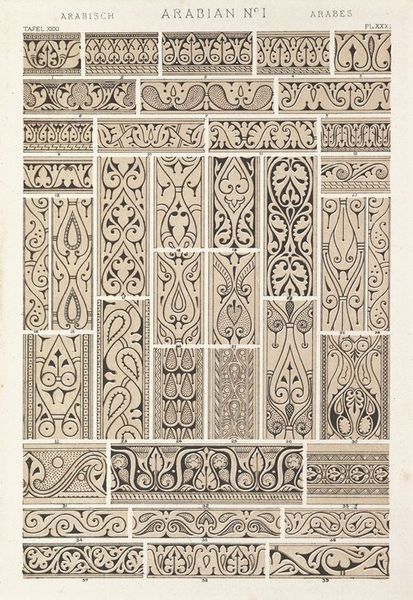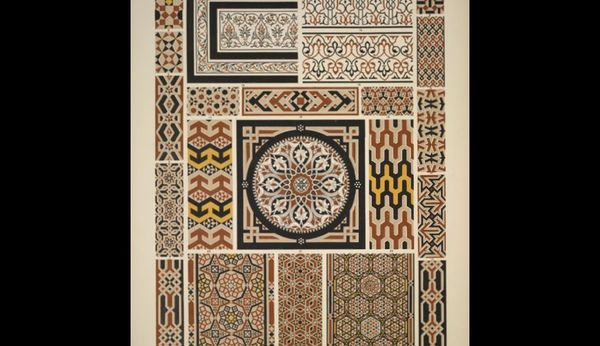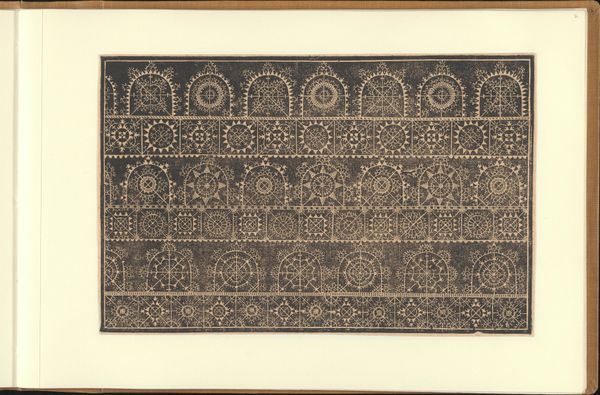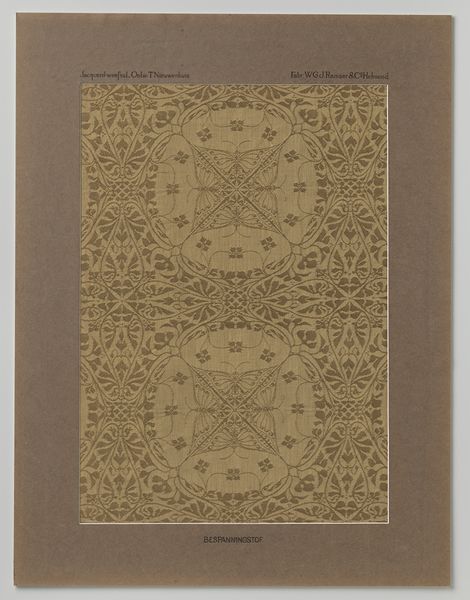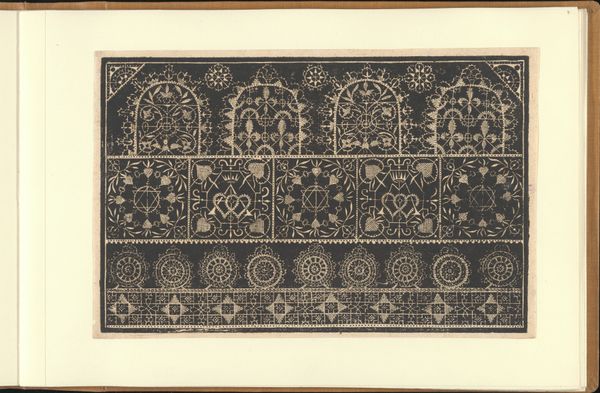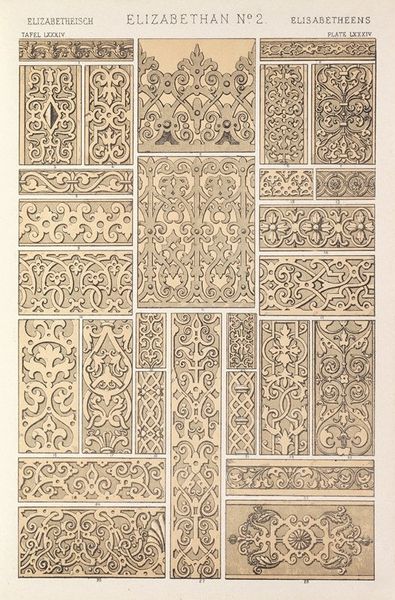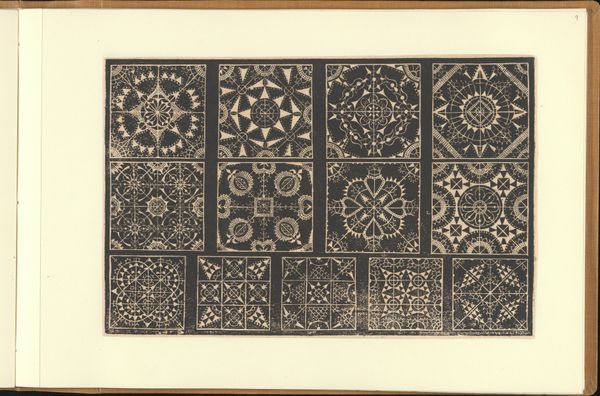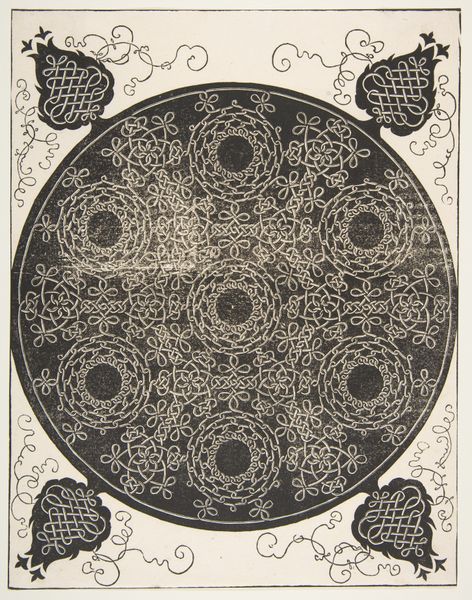
drawing
#
drawing
#
natural stone pattern
#
man-made pattern
#
pattern
#
geometric pattern
#
repetitive shape and pattern
#
organic pattern
#
geometric
#
repetition of pattern
#
vertical pattern
#
abstraction
#
line
#
pattern repetition
#
islamic-art
#
decorative-art
#
layered pattern
#
combined pattern
Copyright: Public domain
Owen Jones made this print of 13th-century Arabian ornaments from Cairo in the 19th century, using lithography. This process involves drawing an image on a stone or metal plate with a greasy substance, then applying ink, which adheres only to the drawn areas. Look closely at the intricate patterns. The original carvings would have been made by skilled artisans, using chisels and other hand tools to create the elaborate designs in stone or plaster. Jones, as a designer, was fascinated by the geometric complexity and symbolic richness of Islamic art. But consider the labor involved, both in the original carvings and in Jones's reproduction. The lithographic process allowed for mass production, bringing these intricate designs to a wider audience. In a way, this print democratizes the original artwork, making it accessible beyond the elite circles for whom the original ornamentation was intended. Ultimately, this print reminds us that every object, whether it be a carved panel or a mass-produced print, is the product of human labor and ingenuity, embedded in specific social and economic contexts.
Comments
No comments
Be the first to comment and join the conversation on the ultimate creative platform.
